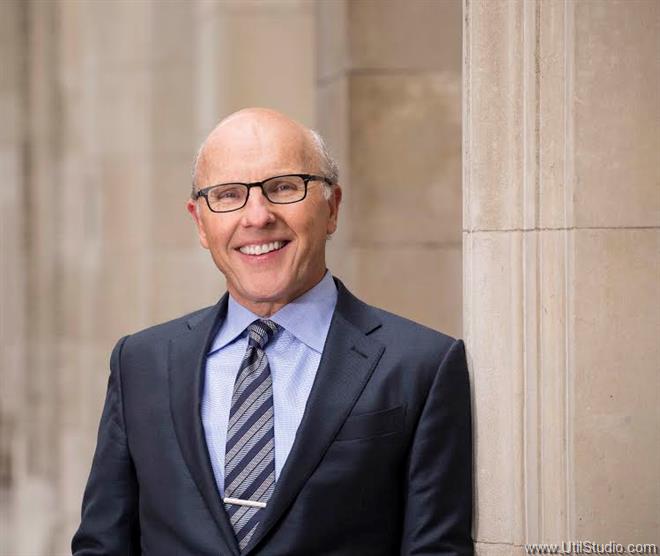NEWMARKET-on-Fergus based David McCourt, the man behind the company that has won the contract for the National Broadband Plan, has said he was unfairly labelled in the media during the selection process.
He has also said that criticism of the cost of the contract failed to take into account of certain inescapable realities and that rural broadband provision can finally revitalise long-struggling areas of the country.
On Tuesday, just hours after the deal was finally concluded, Mr McCourt, who heads up National Broadband Ireland, bypassed interview requests from the national media but met with The Clare Champion in his local pub, O’Neill’s, in the heart of Newmarket. He was warmly congratulated by the pub’s staff on arrival.
It was an unlikely place to find a man whose company had concluded a deal with the Irish State potentially worth €3bn.
On a local level, the National Broadband Plan will see €89 million invested in Clare, with 22,342 homes and businesses to be connected.
As an initial step, 10 public buildings in the county will get free public access to high-speed broadband within 12 months.
The Clare locations are Caherconnell Stone Fort; Loop Head Lighthouse; Cree Community Centre; Ennistymon National School; Halla Eoin, Kilbaha; Kilmurry McMahon National School; Loughgraney Playschool; Michael Cusack Visitor Centre; Shragh National School and Stonehall National School.
The National Broadband Plan eventually became a political football and Mr McCourt said he felt he was unfairly labelled as an opportunist, trying to take wealth from Ireland, rather than contributing to this country.
“I didn’t like being painted as a venture capitalist from Boston. First of all, I haven’t lived in Boston for 35 years. I didn’t like being painted as an extractor of value, when I’m a creator of value. I pride myself on being a creator of value, not an extractor of value.”
While the price tag associated with the project was criticised, not least by political parties in opposition, he described some of the commentary as “totally misleading”.
“I couldn’t comment on it before but it was unfair. First, you take €1bn off the top – pole rental to Eircom; that’s off the top. It’s a regulated price to rent their infrastructure. Everybody has to pay that, no matter what. No matter who it is, you have to pay it. If people thought it was too much, why are they not complaining to the regulator that the rate should go down?
“Then you have VAT of half a billion for the project and contingencies of three quarters of a billion; it has to be set aside if there’s problems. That’s not going to be spent, God willing, and the VAT goes out of one pocket and into another one. Then you have the billion for pole rentals. So what you have left is about €900 million for the project over 25 years,” he said.
Mr McCourt said that all over the world, the equivalent of five times the population of New York city moves from rural to urban areas every year, leaving many rural communities floundering, with cities becoming unaffordable.
He feels that providing proper broadband, thus enabling remote working, is a huge part of solving the issue and that Ireland should aim to lead the way and provide an example.
“There are no jobs here and you can’t afford the housing there. We have to solve this problem globally and wouldn’t it be great if Ireland was the beacon on the hill, the one that everyone looked at and said that’s the one we should all embrace,” he said.
Owen Ryan
Owen Ryan has been a journalist with the Clare Champion since 2007, having previously worked with a number of other publications in Limerick, Cork and Galway. His first book will be published in December 2024.




